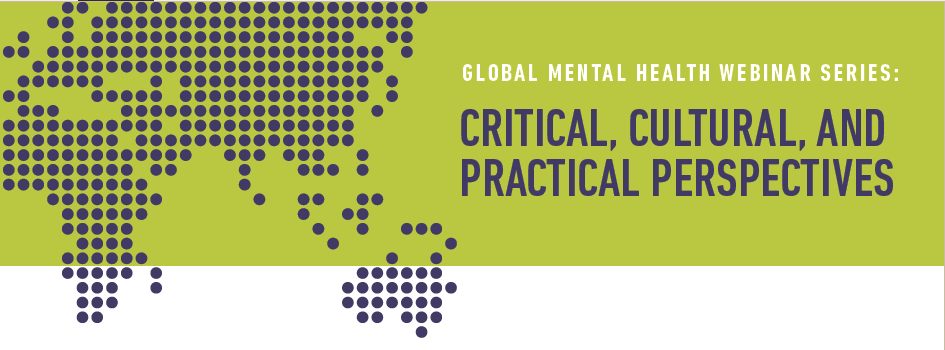
Global Mental Health Webinar Series: Critical Cultural, and Practical Perspectives
Who Counts as a Person? Disability, Mental Health and the Violence of Concealment
In 2016, in what has come to be known as the Esidimeni tragedy, a number of people with intellectual disability and mental disorders were moved from registered care homes in Gauteng province, South Africa, to unregistered facilities. Within the following months, at least 141 of these vulnerable people died. Most were black South Africans. This happened not under apartheid but over twenty years into South Africa’s democracy How could this happen in the country of Mandela?
The Esidimeni tragedy and its aftermath has rightly led to a great deal of anguish and introspection in South Africa. In this webinar, I discuss the cultural and social context of Esidimeni with an eye to raising more general questions about the social and political issues which should concern all involved with mental health and disability issues.
Under apartheid, the particular case of South Africa highlighted the ways in which even apparently progressive and well-meaning policies and practices many enable discrimination and abuse. Ironically enough, the current postcolonial South African context may again throw light on this question. Key to these concerns are more pervasive questions about how and under what conditions we attribute personhood to marginal and disenfranchised groups.
 Speaker: Dr. Leslie Swartz
Speaker: Dr. Leslie Swartz
Stellenbosch University, South Africa
Dr. Leslie Swartz is a clinical psychologist and a distinguished professor of psychology at Stellenbosch University, South Africa. He is an associate editor of Transcultural Psychiatry, and has a long-standing interest in cultural issues in mental health, especially in relation to issues of care in low-income contexts. He also has an interest in disability studies, and works on issues of social inclusion and participation for people with disabilities in southern Africa.
Moderator
Mónica Ruiz-Casares
PhD, MSc, MA, LLB
Associate Professor
Division of Social and Transcultural Psychiatry
McGill University
March 29, 2019
9:00-10:00 am (Montreal EDT)
Attendance: Online platform
Recordings
Recommended readings
CAPRI, C et al. Intellectual disability in the Esidimeni tragedy: Silent deaths. South African Medical Journal, [S.l.], v. 108, n. 3, p. 153-154, feb. 2018.
Chaudhry, V. (2019). Neoliberal crises of social work in the Global South: Ethnography of individualizing disability and empowerment practice in India. International Social Work, 62(3), 1117–1130. https://doi.org/10.1177/0020872818767501
CAPRI, C., SWARTZ, L.. The Right to Be Freepeople: Relational Voluntary-Assisted-Advocacy as a Psychological and Ethical Resource for Decolonizing Intellectual Disability. Journal of Social and Political Psychology, North America, 6, dec. 2018.
Swartz L., Representing disability and development in the global south. Medical Humanities 2018;44:281-284.